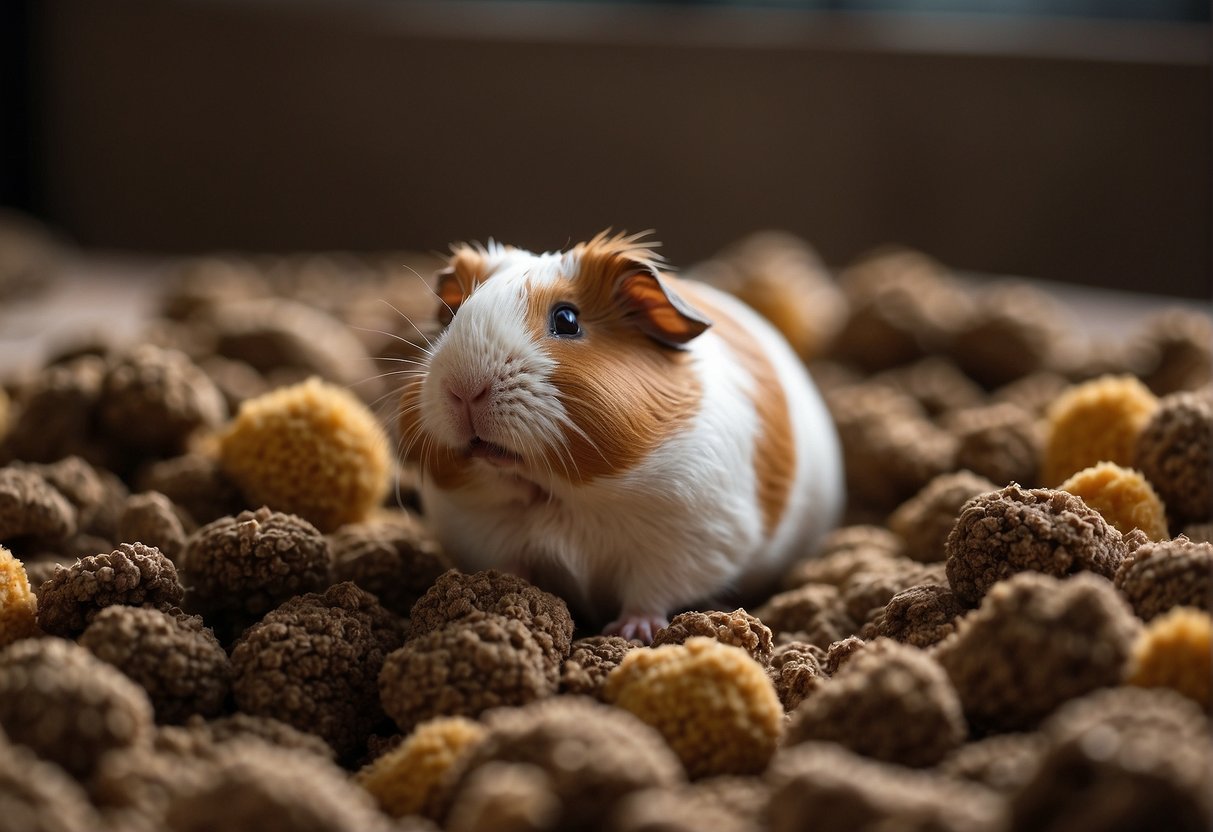Guinea pig manure is increasingly recognized as a valuable addition to garden soil. In my experience, this natural fertilizer offers an effective way to provide essential nutrients to plants while also recycling what would otherwise be waste material. Rich in nitrogen and phosphorus, guinea pig feces can promote healthy plant growth and improve soil structure. As someone who seeks sustainable practices, I’ve found that using this kind of manure not only benefits my garden but also contributes to an eco-friendly lifestyle.

Yes, guinea pig poop is an excellent fertilizer, providing high levels of nutrients that are beneficial for garden plants.
In my garden, I’ve used guinea pig manure both as a direct soil amendment and in a liquid form known as “manure tea.” Preparing the manure tea involves soaking the pellets in water, which then gets diluted and applied to the soil around my plants. This practice has consistently yielded positive results, demonstrating an increase in both plant health and the yield of my vegetable crops. When correctly composted, guinea pig poop can safely be used to improve soil nutrition without the risk of harming the plants it’s meant to nourish.
JUMP TO TOPIC
The Benefits of Using Guinea Pig Manure as Fertilizer
Guinea pig manure is an effective, organic option for improving soil fertility and providing essential nutrients to plants. When composted, it offers a sustainable, eco-friendly fertilizer alternative.
💥 Nutrient-Rich Content
I find that the primary benefit of guinea pig manure is its content of crucial nutrients such as nitrogen, phosphorus, and potassium, which are vital for plant growth. This manure, much like other herbivore waste, contains valuable micronutrients that boost soil health and assist in the robust development of garden plants. Composting guinea pig waste before use is a recommended approach to maximize its benefits as fertilizer.
Nutrient Analysis of Composted Guinea Pig Manure:
| Nutrient | Percentage | Benefit to Plants |
|---|---|---|
| Nitrogen (N) | Varies | Leaf growth |
| Phosphorus (P) | Varies | Root development |
| Potassium (K) | Varies | Overall health and disease resistance |
💥 Environmental Impact
As an advocate of sustainable living, I appreciate that using guinea pig manure as fertilizer aligns with eco-friendly and recycling principles. It promotes the recycling of waste and reduces the dependence on chemical fertilizers, which are often associated with environmental harm. With composting, guinea pig manure becomes a carbon-rich, organic amendment that contributes to the soil’s long-term health, fostering a natural ecosystem and supporting biodiversity.
💥 Health and Safety Precautions
However, it’s crucial to manage guinea pig manure properly to avoid potential health risks. While the manure itself is considered mild and doesn’t typically burn plants, urine-soaked bedding can increase nitrogen content significantly.
Guinea pig feces can potentially carry pathogens such as Giardia; therefore, composting it thoroughly before use is imperative to eliminate any risk of bacterial contamination.
Guinea pig droppings can enrich your compost pile with nutrients essential for plant growth, and proper composting techniques ensure safe and effective fertilization.
Creating and Managing a Compost Pile with Guinea Pig Waste
I’m going to guide you through the creation and maintenance of a compost pile using guinea pig waste, ensuring a beneficial fertilizer while respecting ecological processes.
Steps for Composting Small Animal Waste
To start, I segregate a section of my compost pile specifically for guinea pig droppings and organic material, such as straw bedding or uneaten veggies. Here’s the process:
- Layering: Begin with a layer of coarse materials, like sticks or wood chips, at the bottom for proper drainage.
- Adding Waste: Sprinkle guinea pig waste and bedding over it.
- Balancing: Cover this with a carbon-rich layer, such as dried leaves or newspapers, to balance the carbon-to-nitrogen ratio.
- Moistening: Keep the pile moist, but not too wet.
- Aeration: Turn the pile regularly using a shovel or pitchfork to provide oxygen for the microorganisms beneath.
Optimizing the Compost Process
Achieving optimal composting conditions hinges on managing several factors:
-
Temperature: I monitor the pile’s temperature to ensure it reaches 130-150°F, which promotes microbial activity and decomposition.
-
Moisture and Aeration: A consistent turning schedule introduces air and evenly distributes moisture and new material, which is crucial for effective decomposition.
-
Maturity: The aging process for guinea pig waste in a compost pile typically spans six months to two years. I check for a dark, crumbly texture and an earthy smell as signs of mature compost, ready to nourish plants in my garden.
Incorporating Composted Manure into Soil for Improved Plant Growth
Composted guinea pig manure contributes to a nutrient-rich soil, promoting healthy plant growth. Through proper integration, the organic matter from the compost improves soil structure and feeds plants.
Soil Improvement Techniques
To introduce guinea pig manure to your garden, a soil test is essential. It helps determine the soil’s nutrient levels and requirements. With this information, I will then create a balanced environment for plant health.
Add composted manure in the fall or early spring. Distribute a two- to three-inch layer evenly across the soil, avoiding direct contact with plant stems to prevent burn.
Mix compost into the top few inches of soil. This practice helps in incorporating organic matter effectively, enhancing aeration and water retention. Steady nutrient release from the compost supports ongoing plant nourishment.
Ensuring Plant and Human Safety
To ensure the safety of both plants and humans, especially when dealing with edible crops, precautions must be taken.
Only use well-composted manure to minimize the risk of pathogens that can harm plant and human health.
A key consideration is the maturity of the compost. Immature compost can attract pests and hamper seed germination. As for human safety, fully decomposed compost prevents potential bacterial contamination from pathogens like E. coli and Salmonella. Always wash hands after handling manure and properly clean vegetables before consumption.












